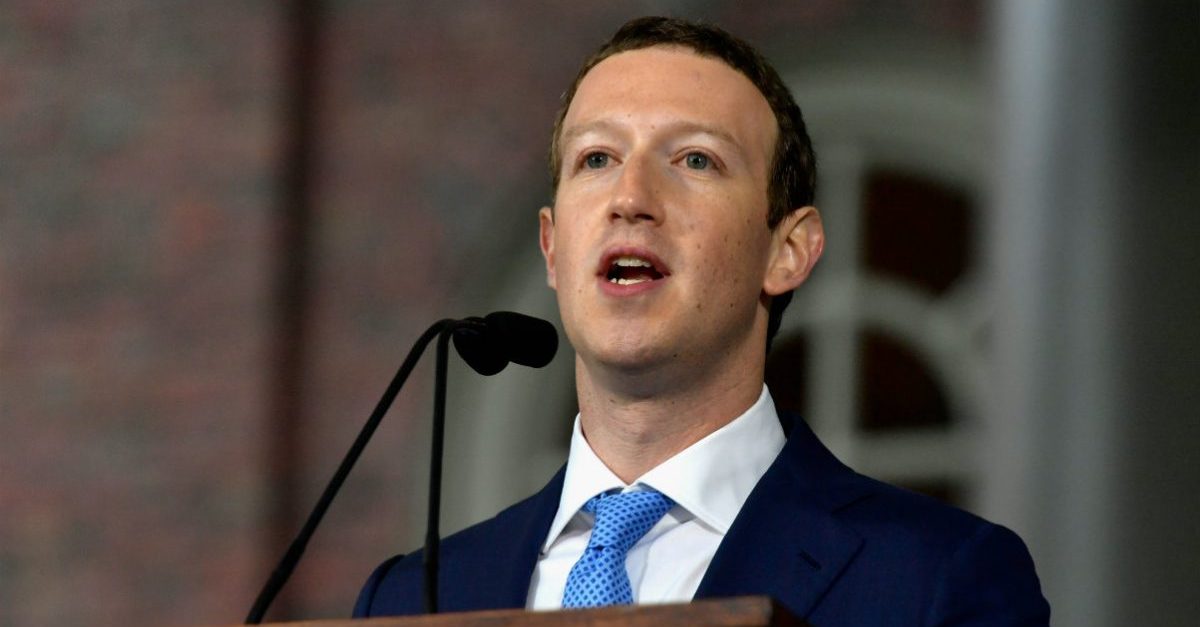
Mark Zuckerberg. (Photo via Paul Marotta/Getty Images.)
Facebook may have succeeded in dismissing an earlier version of a Federal Trade Commission lawsuit that accuses the social media giant of monopoly practices, but a federal judge ruled that the tide might be changing on a “more robust and detailed” complaint filed by regulators.
“Second time lucky?” U.S. District Judge James Boasberg wrote at the start of a 48-page ruling that sends the refortified case to discovery.
In December 2020, the FTC filed a federal lawsuit to break up Facebook. The lawsuit sought a “divestiture of assets” and a “divestiture or reconstruction of businesses (including, but not limited to, Instagram and/or WhatsApp).” In a separate lawsuit, New York Attorney General Letitia James (D) and 47 other AGs accused Facebook of seeking #TotalDomination in purchasing Instagram and described a climate of fear of those targeted by the “wrath of Mark.”
Those early efforts failed spectacularly in Boasberg’s courtroom last year on June 28, when the judge booted both lawsuits in opinions that opened with sweeping narratives about social media and antitrust law.
“At the time of the last great antitrust battle in our courthouse — between the United States and Microsoft — Mark Zuckerberg was still in high school,” the first lines of the ruling begin. “Only after his arrival at Harvard did he launch ‘The Facebook’ from his dorm room. Nearly twenty years later, both federal and state regulators contend, in two separate actions before this Court, that Facebook is now the one violating the antitrust laws.”
Last year’s ruling to scuttle the attorneys’ general suit was similarly grand.
“As the pillars of our national economy have shifted from the concrete to the virtual, so too have the targets of government antitrust actions,” that ruling begins. “Where railroads and oil companies were alleged to be early violators, over the past decades, providers of telecommunications (AT&T) and computer operating systems (Microsoft) have been the defendants. In the internet age, not surprisingly, Facebook finds itself in the spotlight, as both federal and state regulators contend, in two separate actions before this Court, that it is now the one violating the antitrust laws.”
Both iterations of the commission’s lawsuit alleged that Facebook crowded out competition for personal social networking services by acquiring competitors and potential competitors, such as Instagram and WhatsApp, and allegedly implemented policies that prevented Facebook from operating with other apps the company viewed as nascent threats.
“The facts alleged this time around to fortify those theories, however, are far more robust and detailed than before, particularly in regard to the contours of Defendant’s alleged monopoly,” Boasberg wrote on Tuesday.
According to the ruling, Facebook alleged the FTC’s reboot was “akin to rearranging the deck chairs on the Titanic.”
“Although the agency may well face a tall task down the road in proving its allegations, the Court believes that it has now cleared the pleading bar and may proceed to discovery,” the ruling continues.
Having cleared its first litigation hurdle, the FTC said it looked forward to running the rest of the race. proceedings in the case.
“FTC staff presented a strong amended complaint, and we look forward to trial,” Holly Vedova, the director of FTC’s Bureau of Competition, told Law&Crime.
Representatives for Facebook did not immediately respond to emails requesting comment.
This is a developing story.
Read the ruling below: